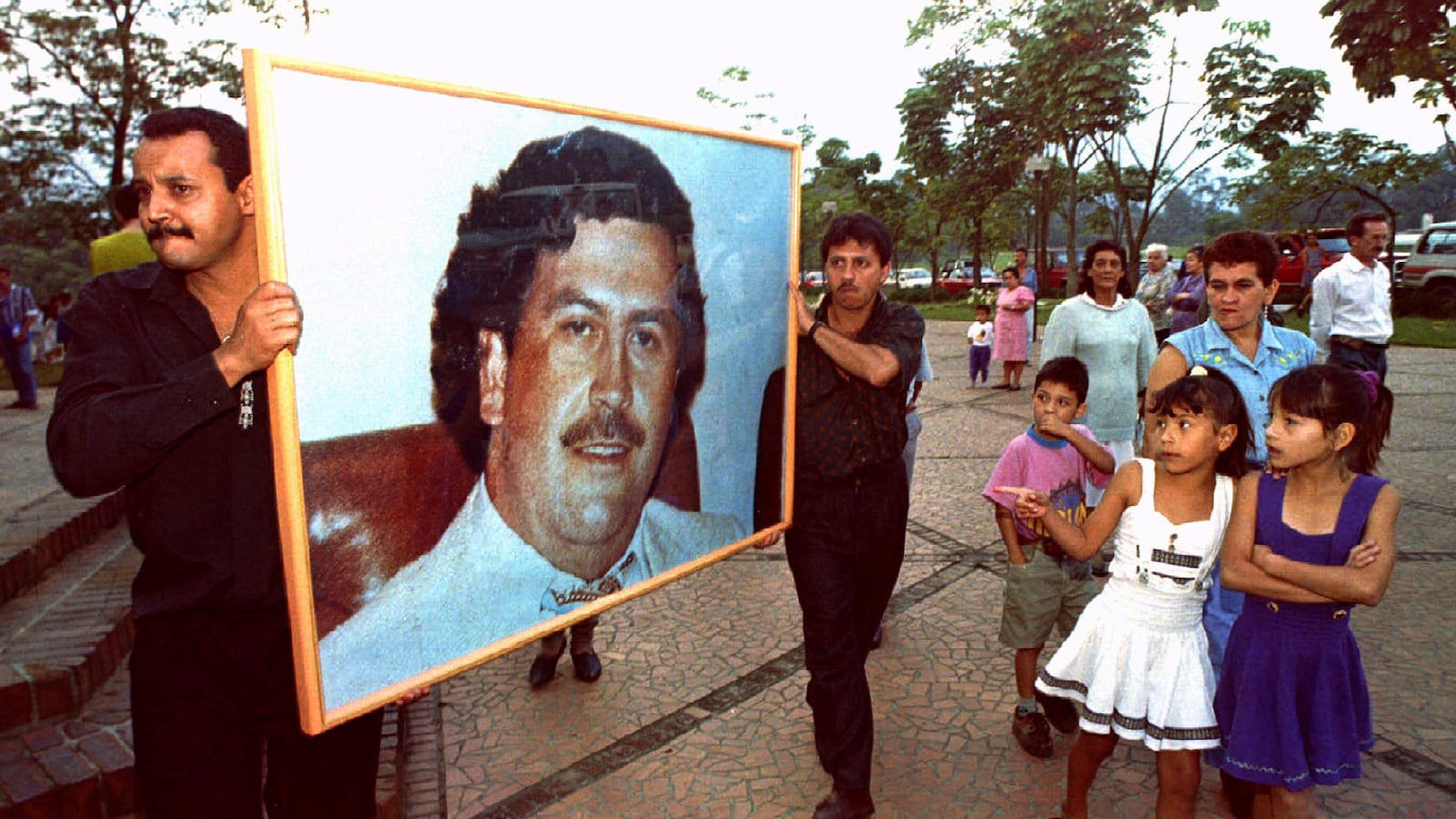In the hit Netflix series Narcos, which tells the story of Colombian drug lord Pablo Escobar, viewers have repeatedly witnessed the violent ends that unfortunate victims meet when the kingpins of the Medellin cartel feel they are depriving them of a slice of the action.
Now, in what many observers will see as an entirely predictable case of life imitating art, the Escobar family is demanding a billion-dollar payout from Netflix, in an intellectual-property rights dispute.
On Monday, Escobar’s 71-year-old surviving brother, Roberto De Jesus Escobar Gaviria, issued a chilling threat to the makers of the series, advising them to hire “hitmen... as security” on location in Mexico.
Escobar threatened to “close their little show” if the streaming giant failed to provide a $1 billion payment to his company, Escobar Inc., for alleged intellectual-property violations.
“I don’t want Netflix or any other film production company to film any movies in Medellin or Colombia that relates to me or my brother Pablo without authorization from Escobar Inc. It is very dangerous. Especially without our blessing. This is my country,” Escobar told The Hollywood Reporter.
His remarks came after Carlos Muñoz Portal, a location scout for the new series of Narcos, was found shot dead under unexplained circumstances last week along a dirt road in Mexico State.
In his interview, Escobar added, “Netflix are scared. They sent us a long letter to threaten us.”
Now that letter, prepared and sent on July 27 by Los Angeles legal firm Sheppard, Mullin, Richter & Hampton LLP, along with some other correspondence, has been published by The Hollywood Reporter, and it all makes for fascinating reading.
It claims that the Escobar family has filed trademark applications covering the name “Narcos.”
In the application, the letter says, the Escobar family claimed that they had been using the name “Narcos” to operate a website since 1986—before the internet had been developed for widespread consumer use.
In the letter, the lawyers for NPL, the production company behind the series (and its popular video game spinoff, Narcos: Cartel Wars), write that “on Aug. 20, 2016, Escobar filed use-based applications to register the marks NARCOS and CARTEL WARS with the [U.S. Patent and Trademark Office] covering a range of goods and services.”
The letter calls the claims “fraudulent.”
“For example, Escobar claims that it has used NARCOS in connection with things like ‘operating a website’ and ‘game services provided online from a computer network’ since Jan. 31, 1986. However, the internet had not been developed for widespread consumer use in 1986, nor was the capability to provide audiovisual works nor game services available at that time.”
Lawyers for Netflix then threaten to retaliate by suing the Escobar family.
In a subsequent email correspondence obtained by THR and dated Sept. 1, an attorney for Escobar Inc. informs Escobar that he and Pietrini had a productive conversation about the claim.
“I floated the idea of paying you for an assignment or license or release related to your pre-existing rights in the trademarks in certain categories,” the lawyer writes. “She seemed to see the logic of exploring those discussions. She is going to speak with her client and get back to me.”
Olof Gustafsson, the CEO of Escobar Inc., told The Hollywood Reporter that Netflix is beginning to take their threats seriously.
“At first, they refused to acknowledge us. After we registered all the trademarks and we’ve been granted some of them, they sent us a cease-and-desist letter. After that our attorneys and their attorneys have come to an agreement that basically they need to pay us something. Now it’s a matter of determining how much that something is,” Gustafsson said.
He adds: “At the end of the day, if we don’t take a deal, then we own the trademarks. They would have to rebrand their entire show. They know this. This is why they’re talking to us. Otherwise they would never entertain any discussions with a drug cartel family.”
Other members of the Escobar family have objected to the series on nobler grounds.
Pablo Escobar’s son, for example, blasted the depiction of his father in the Netflix series as worryingly glamorous.
“I am not against telling stories, but I am against glorifying criminals and showing drug trafficking as glamorous. This confuses youths,” Sebastian Marroquin, 39, told El Periodico. “I receive tons of messages from youths asking for help to be like my dad. They want to be that criminal, they send me photos dressed up like him, with his mustache, his hairstyle.”
Roberto was the cartel’s accountant and was known as “chief of the hitmen.” He was released from prison in 2003, where he was rendered partially blinded and deaf from a mail bomb.






